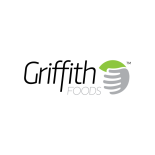Ekomenu shows the true price of meals!
Ekomenu, provider of healthy menus introduces the True Price Advantage to all its recipes and meal boxes. This makes the impact on health and the environment transparent for consumers and society. It will make choosing healthy options a lot easier for the consumer and get a better understanding of the potential impact of more sustainable food choices. This is essential because the actual cost of our food is three times what we pay at the checkout of the (online) supermarket. Ekomenu is the first in the market to take this innovative step.
Saving a lot of money on big expenses
The true cost of our food, including health and environmental impacts, is huge. Per month, an average family spends €550 on groceries. There are also social costs for environmental damage (€385), damage to health (€605) arising from our diet and the agri-food chain (source: United Nations, FAO). We all pay for this through our insurance premiums and taxes.
By making the true cost of a meal transparent, consumers can be helped to make healthier and responsible eating choices based on their own choice. As a result, a lot of money can be saved on welfare diseases and damage caused to water, soil and climate. Director Jack Stroeken: “Exactly for these reasons, Ekomenu is the first worldwide to introduce the True Price Advantage with all its meals and meal boxes. By being transparent about our impact, we want to make healthy and sustainable eating easier. That is our mission. The goal is to halve the actual cost of the True Price. Currently (January 2024) Ekomenu realises an average of 40% savings of the average national evening meal.”
Frank Fol, The Vegetables Chef®: "Finally, step by step, we get a scientifically based view of the true cost of the overall trajectory and impact of our food. This way, we become more and more aware of our choices carry".
True Price: what does this stand for?
In short: True Price is the price of a meal including environmental and health costs. What you eat and how it is produced affects the health of ourselves and our environment: soil, climate, biodiversity. These environmental damages and health costs are not included in the price you pay at the checkout. Consumers do pay for these damages through our taxes and health insurance premiums. Or, much worse, we shift the problems to future generations.
How is True Price compiled?
True Price thus shows the true cost of a meal. The United Nations has calculated that every €1 you pay for food should actually cost €2.90. This is because, according to the UN, €0.70 is added to environmental costs and €1.20 to health costs. Finally, we should add €0.10 in economic costs (being sick at work, for example). In addition, the Voedingscentrum has calculated consumer food waste (9.5%). These official figures are rough calculations, possibly higher in practice and different per country. But they help us enormously with estimating what costs you can save by eating differently.
How is the calculation made?
Based on data collected by Ekomenu, visible in the foodprint per recipe, there is insight into the CO2, scarce water use and health risks of a meal. These values are compared with the foodprint of the average national evening meal (based on Food Consumption Survey data). The True Price Advantage is then calculated: the difference of your meal compared to the national average meal. This is primarily to create awareness, it is not the price the consumer actually pays in the shopping basket. However, Ekomenu will start offering customers benefits on meals with a large True Price Advantage.
What is the impact of organic farming?
The potential impact of organic production on the foodprint and on True Price is huge. Founder and managing director Jack Stroeken: “However, there are no True Price calculations yet in which the organic impact is fully taken into account, that is now only 10% influential in our calculations. However, there are several individual scientific studies. One example is that organic cultivation of outdoor vegetables gives much lower CO2 emissions due to CO2 buffering in the soil. Also due to the lack of artificial fertilisers and poisons. In addition, we know that organic food can have a positive health impact on immunity, microbiome and Parkinson’s disease.”













